Nobel Season
Above the Fold plays the waiting game
The government is still shut down, and it might be for a good long while:
While many attribute this shutdown to Democratic opposition to healthcare cuts, or to Republican unwillingness to blow up the filibuster, or to both sides dealing with rescissions undermining the sanctity of the budgeting legislative process…
…I have my own theory. I think that the government is shut down because policymakers are busy forecasting Nobel season.
Peace
Tomorrow morning, the most prestigious of Nobel Prizes is announced. Much ink has been spilled about how President Trump covets the award, why the race for the prize actually might be great for world peace, and how international diplomacy these days revolves around how much other leaders are able to play into this dynamic. However, the selection process is tight-lipped, Norwegian, and opaque. Manifold traders really only have a couple of guesses as to who might win it, and none of them are good.
Only two candidates exceed five percent: Sudan’s Emergency Response Rooms, which have done tremendous work over the last couple years in Sudan’s civil war, and Yulia Navalnaya, the wife of the Russian dissident Alexei Navalny, who died last year in a Russian penal colony, and a leader of the Russian opposition to Putin in her own right.
I think everyone on this list is at least a remotely plausible candidate (with the exception of Jolani), but “Other” remains as the most likely option in the market.
Trump, by far the most traded option, remains at an uninspiring 3%. And this did not tick up, despite announcements of an agreement on hostage releases and withdrawal of Israeli forces from Gaza.
Manifold stills views there to be some uncertainty as to how that agreement will play out, with traders in this market trying to litigate which of the points of the peace deal will remain intact and faithfully followed.
That being said, given the opaqueness of the selection process, it’s hard to say whether this is too late for consideration. Ultimately, the phone call only goes out in the early hours of tomorrow morning, minutes before the official announcement at noon Swedish time. But it’s possible the committee has already reached an agreement.
In any case, let’s hope that our country doesn’t pivot to war if peace doesn’t get us a prize:
Literature
The literature Nobel market wasn’t nearly as well-traded as the peace market is, but the marginal frontrunner did in fact win!
László Krasznahorkai, the yellow line in the image above, was bouncing around 10% for most of the couple weeks leading up to the announcement. Other favorites included Thomas Pynchon, Haruki Murakami, and Gerald Murnane, Mirceau Catarescu, and Can Xue, all of whom were also trading around 10%, generally slightly behind Krasznahorkai. Krasznahorkai, a “great epic writer in the Central European tradition,” won the prize “for his compelling and visionary oeuvre that, in the midst of apocalyptic terror, reaffirms the power of art.”
Speaking of apocalyptic terror in Krasznahorkai’s nation of Hungary, the next elections are coming up in early 2026. Orban, who at the start of the year was viewed as a favorite to hold on, has seen his position slipping over the course of the year.
Perhaps correlated with Orban’s chances are those of his chief rival, the patriotically named “Peter Magyar,” who should probably be at least slightly worried about his security, judging from this market.
Science
The chemistry, physics, and physiology/medicine Nobels were unfortunately not tracked on Manifold. Researchers on metal-organic frameworks got the nod in chemistry, macroscopic quantum experiments in physics, and peripheral immune tolerance in medicine. These were all bad decisions. It should have been GLPs in chemistry and medicine, and Mordechai Milgrom in physics (only half joking).
That being said, in the spirit of last years’ science Nobels, where the Nobel committee decided to stop caring about boring iterative science and instead award prizes for AI, I will do the same. That is to say, I will stop talking about the science Nobels and start talking about AI forecasts.
We are all still waiting for Gemini 3.0, which surely is coming out any day now.
A couple months ago, I wrote on Above the Fold that despite reports to the contrary, GPT-5 underperformed forecasters’ expectations on the excellent METR benchmark.
Well, after another couple months of discourse, Claude Sonnet 4.5 came out and… it once again underperformed forecasts on the METR benchmark!
At market close, the median forecast would have fallen just above 2.5 hours, and Claude 4.5 came in with a score of just 1 hour, 53 minutes, despite early appraisals that it outperformed GPT-5 on a subjective level.
I don’t want to wade too far into this discourse, but METR’s trend line for a rapid doubling time should imply that Gemini 3.0 should exceed GPT-5, and yet the market on that is currently evenly split (you can also once again bet on the time horizon bucket here).
Economics
My editor has informed me that they’ve just invented some kind of “Nobel Memorial Prize in Economic Sciences.” Sounds fake to me, but I guess you can bet on that here before next Monday!
Our own Manifold community is currently innovating in economic value creation with a “Double it and Pass it On” chain market. Let’s see if we can get Quroe (who previously re-invented an econ-Nobel-winning auction breakthrough on Manifold) on the shortlist for next year.
Happy Forecasting,
-Above the Fold!


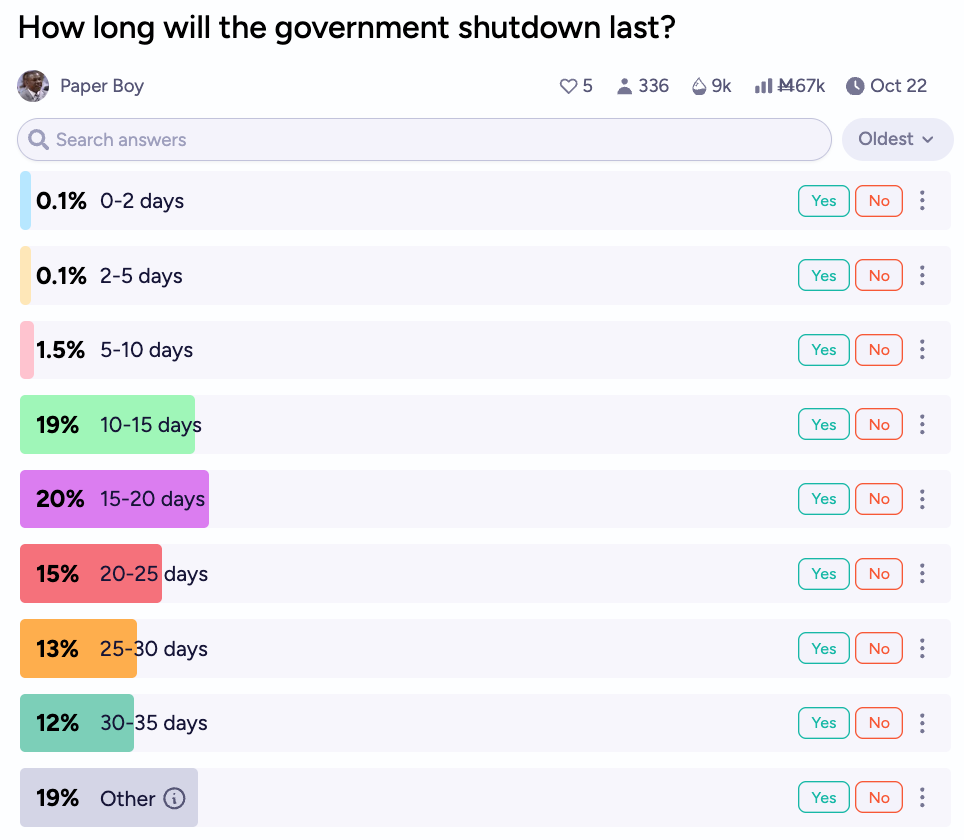
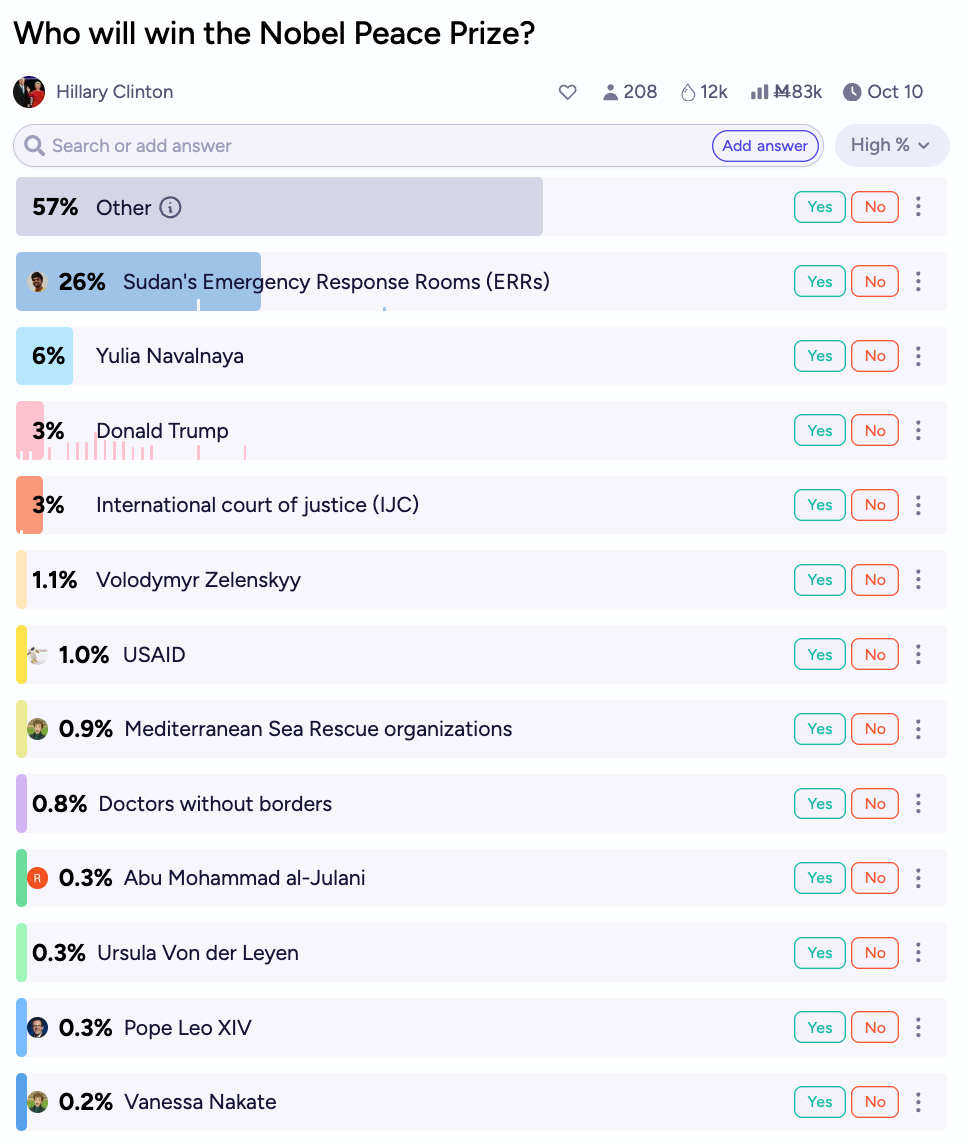
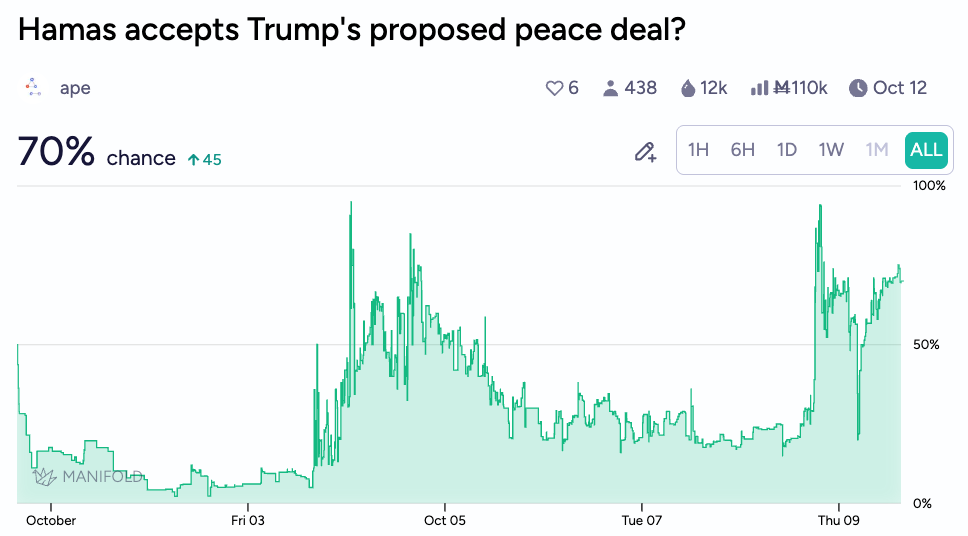
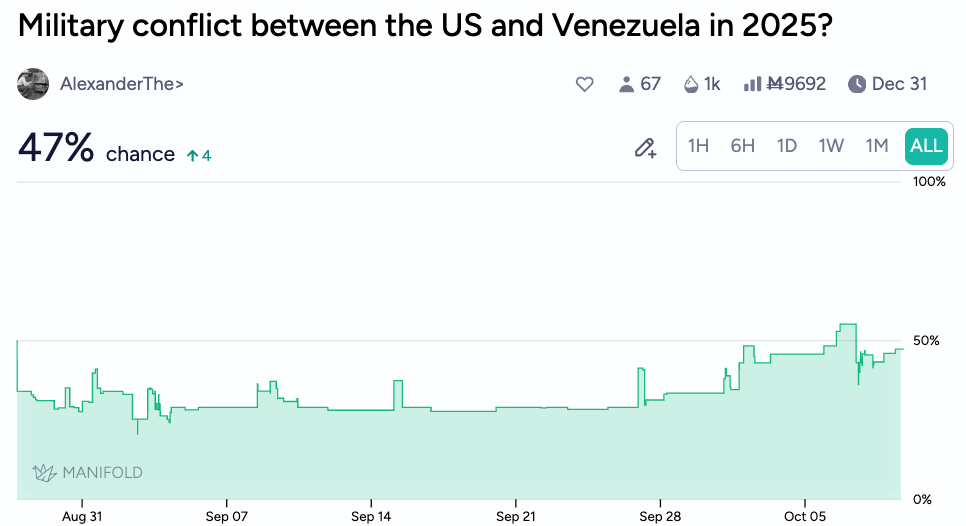
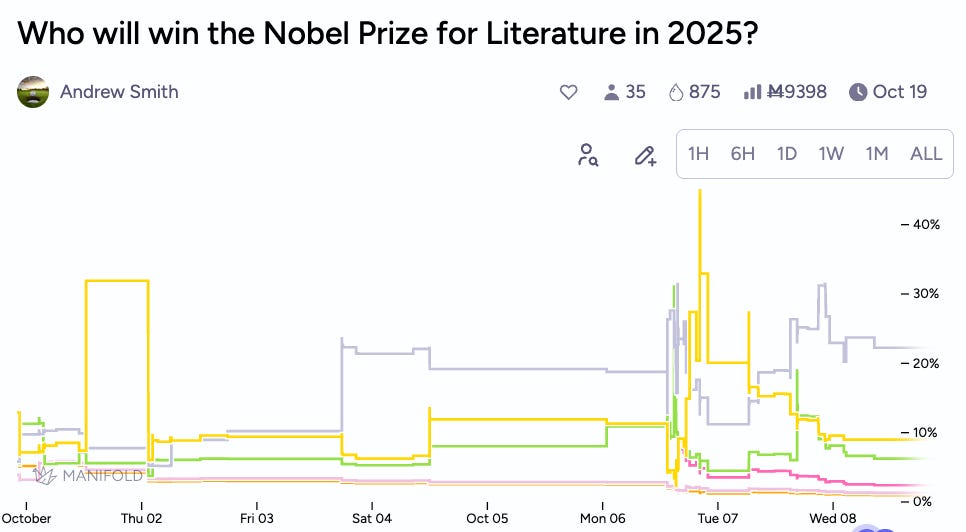
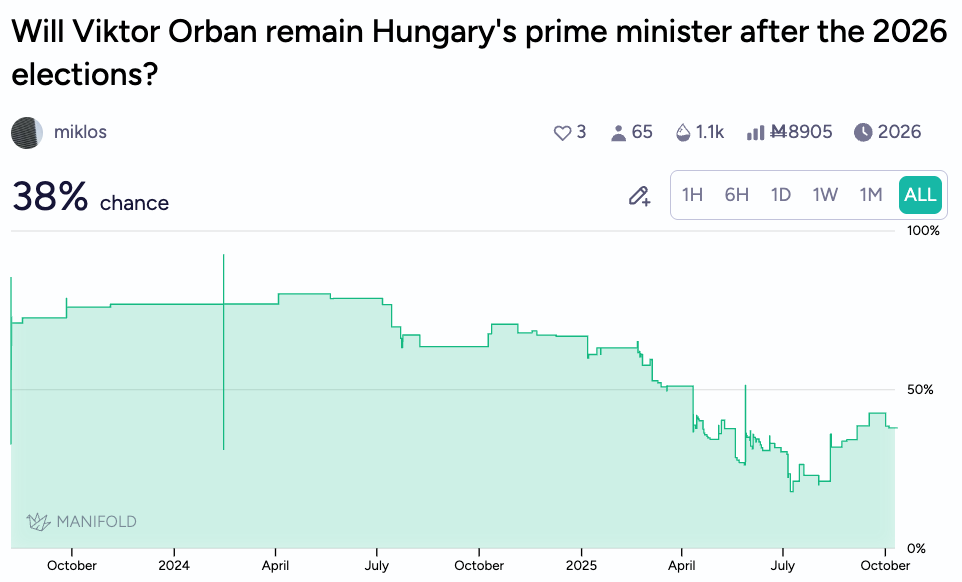
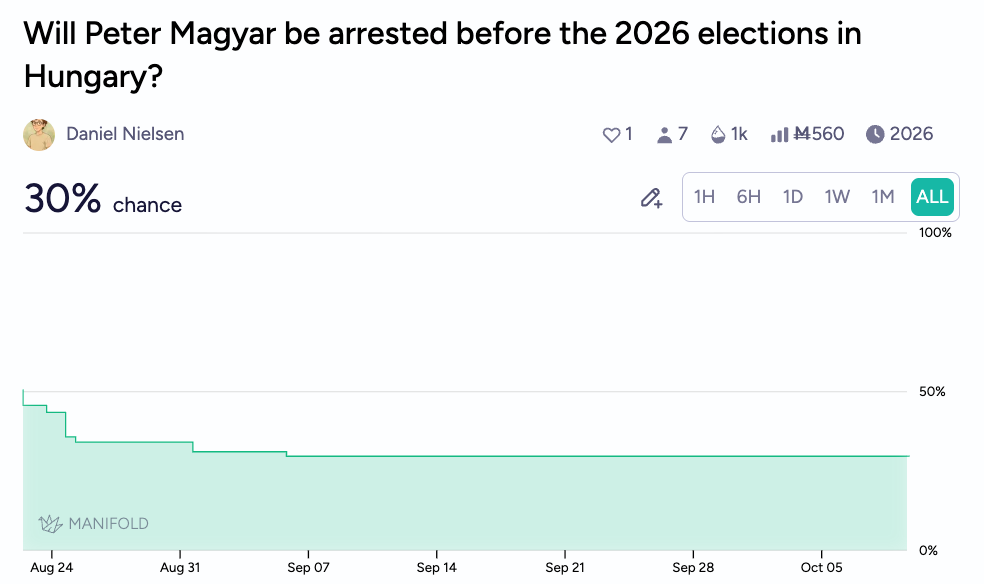
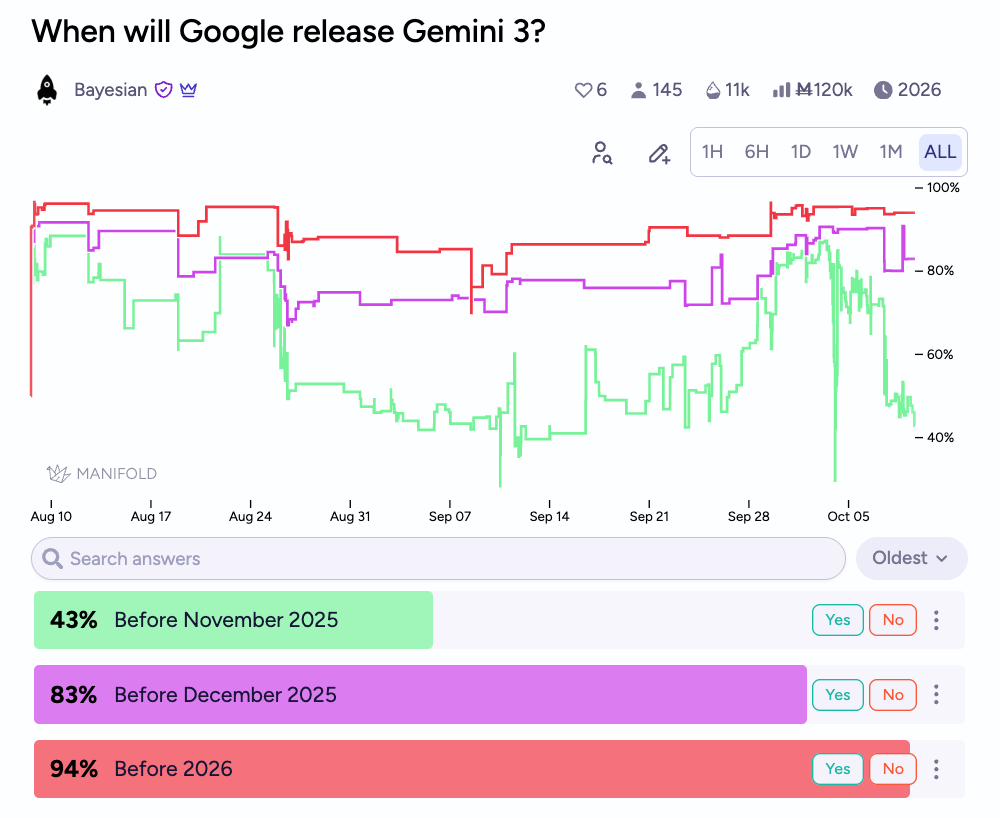
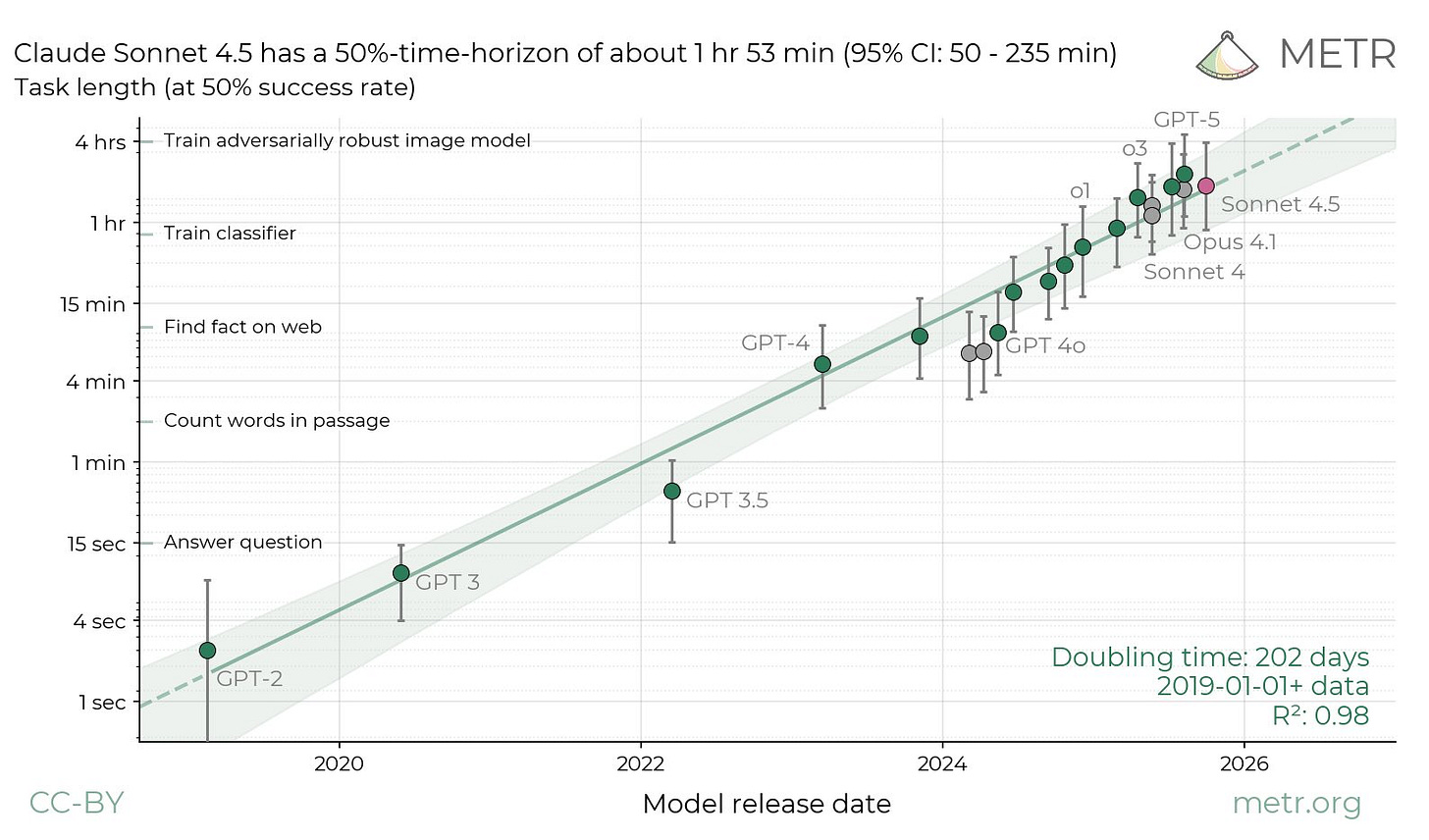

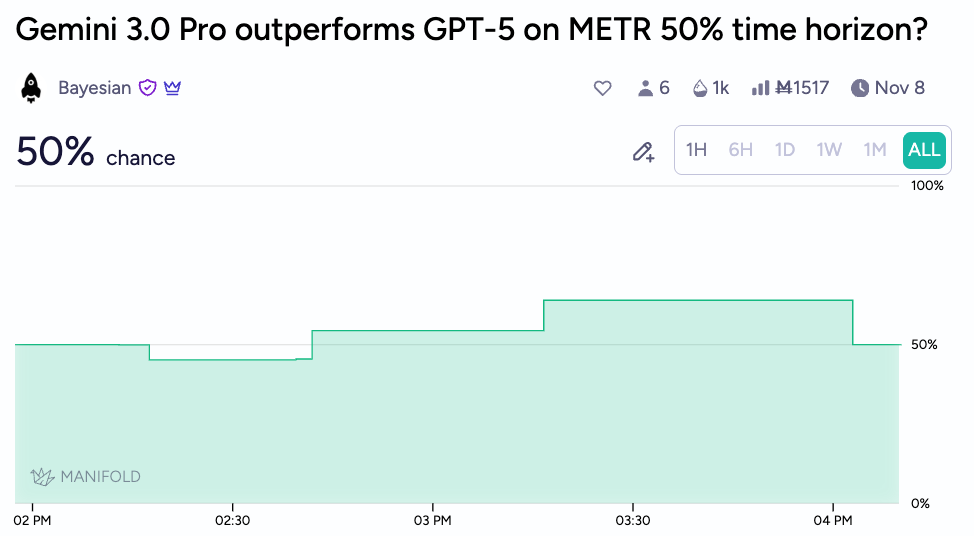
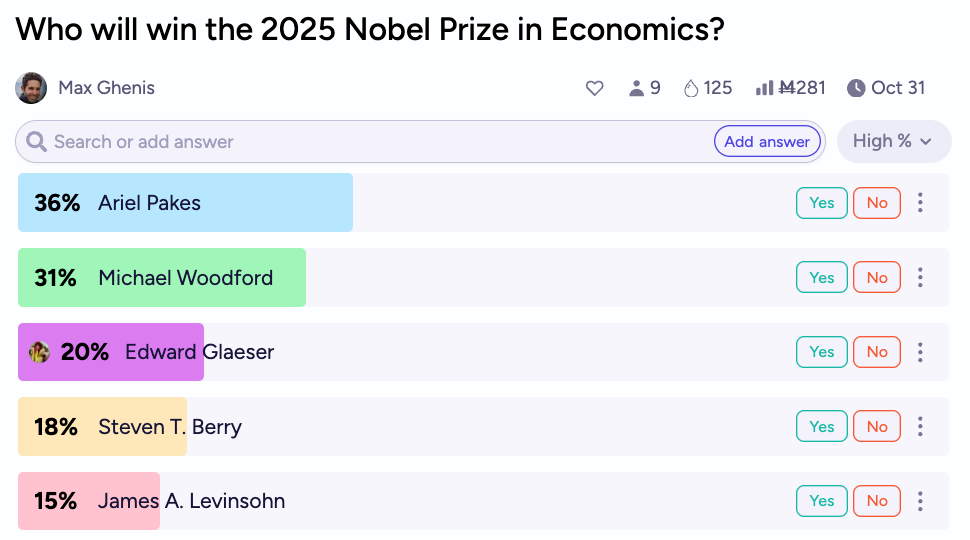
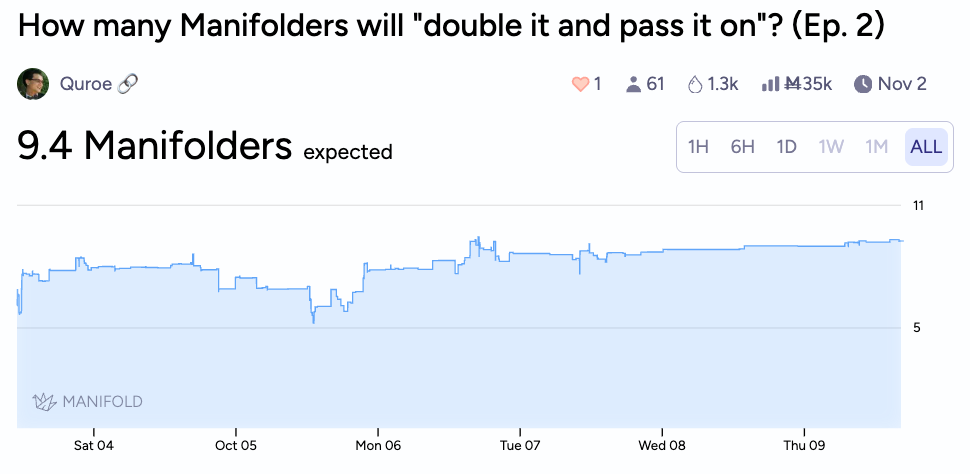
Those opaque Norwegians should have a combined Economics & AI prize, since AI has caused a measurable economic impact.
There is... let's say "lore" to the Double It game now. This has been a very fun one to adjudicate. Every hyperlink I made in that market description can help you peel back the curtain and understand the saga. It turned into a, "reality TV show," except it's all played out in the market comment sections.
Also, shame on the author of this article, Ben S, for breaking the chain in episode 1 suuuper early. https://manifold.markets/Quroe/bens-shame-index-bsi?r=UXVyb2U